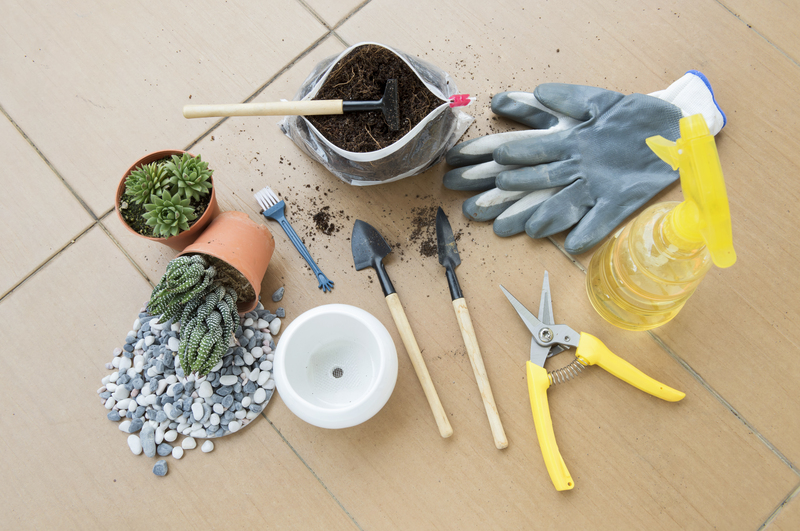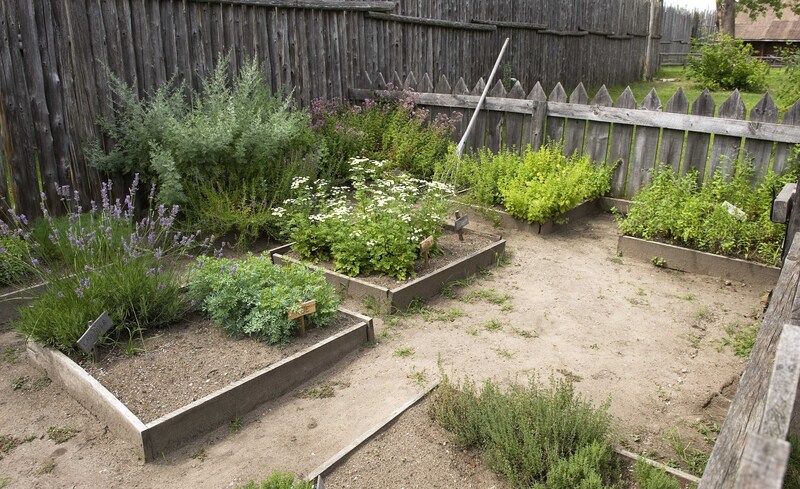Turning the Ordinary into Soil Treasure
Posted on 06/09/2025
Turning the Ordinary into Soil Treasure: Transforming Everyday Items into Fertile Gold
Welcome to the ultimate guide on Turning the Ordinary into Soil Treasure. If you've ever wondered how kitchen scraps or garden waste can be magically transformed into rich, fertile soil, you're not alone. More gardeners, homeowners and eco-enthusiasts are discovering the tremendous advantages of upcycling everyday items into valuable soil amendment materials. In this comprehensive article, you'll uncover the secrets of soil enrichment through composting, upcycling, and repurposing common household waste. By the end, you'll know how to create your own soil treasure and enjoy thriving plants, a cleaner environment and a sense of accomplishment.

What Does 'Turning the Ordinary into Soil Treasure' Mean?
The phrase turning the ordinary into soil treasure refers to the transformation of regular household and yard waste--those bits and pieces we usually discard--into a nutrient-dense, eco-friendly soil amendment through composting and recycling techniques. Whether you live in an apartment, suburb, or rural area, you can employ these methods to reduce landfill habits, support local soil health, and grow more robust gardens and lawns.
Why Transform Common Waste into Soil Treasure?
1. Boosts Soil Fertility Naturally
- Compost provides essential nutrients: Composting transforms organic waste into a nutrient-rich input for your soil, improving plant health and yield.
- Improves soil structure: The addition of organic matter enhances soil texture, which improves water retention and aeration.
- Encourages beneficial microbes: Healthy soil is teeming with life! Compost increases microbial populations, essential for plant root health.
2. Reduces Landfill Waste
- By recycling ordinary waste into soil treasure, you help cut down on the global waste burden, contributing to a greener planet.
- 30% of household waste can be composted: That's a huge reduction in what ends up in landfills!
3. Saves Money and Resources
- Avoid purchasing synthetic fertilizers--your home-made compost is free and sustainable.
- Conserves water with improved soil that retains moisture better.
4. Increases Garden Yields and Plant Health
- Soil enriched with organic matter supports vigorous growth and stronger plants.
- Reduces susceptibility to pests and disease.
The Science Behind Turning Waste into Soil Treasure
Composting and other forms of natural recycling rely on simple yet powerful biological processes. Bacteria, fungi, worms, and other organisms break down organic material through decomposition. The resulting material is called humus, which contains nutrients easily accessible to plants. This process, when managed correctly, unleashes the hidden wealth from your ordinary waste--transforming it into a literal soil treasure.
Key Elements of Soil-Boosting Decomposition
- Organic matter: Includes food scraps, leaves, grass clippings, coffee grounds, etc.
- Air: Oxygen is necessary for aerobic composting and speeds up the breakdown.
- Moisture: Keeps microorganisms active and happy.
- Microorganisms: The workforce of bacteria, fungi, and invertebrates carries out decomposition.
Without these elements, organic matter would decay much more slowly, and not become the nutrient-rich soil amendment gardeners and farmers seek.
What Everyday Items Can Be Turned Into Soil Treasure?
You'll be amazed at what can be composted! When it comes to transforming the ordinary into garden gold, common household items top the list.
Top Waste Items to Recycle into Soil Treasure
- Kitchen scraps: Fruit peels, vegetable ends, coffee grounds, eggshells and tea bags.
- Paper products: Shredded newspaper, cardboard, paper towels (unbleached and chemical-free).
- Yard and garden waste: Grass clippings, fallen leaves, spent flowers, weeds without seeds.
- Wood chips and sawdust: From untreated wood only.
- Animal manure: From herbivores like rabbits or chickens (not from carnivores or omnivores).
- Hair and fur: Both human and pet hair adds nitrogen!
- Old potting soil: Revitalize spent soil with fresh organic matter through composting.
What to Avoid When Creating Soil Treasure
- Meat, bones, dairy, and oily foods--they attract pests and slow down decomposition.
- Synthetic chemicals or non-biodegradable materials (plastics, glass, metals).
- Diseased plants or weeds with mature seeds.
How to Successfully Turn Ordinary Waste into Soil Treasure
Ready to transform your waste into soil treasure? Follow these proven steps for beginner-friendly soil enrichment.
Step 1: Start a Compost Pile or Bin
- Select a dry, shady spot for your pile or bin. You can buy a bin or make one from materials like pallets or wire mesh.
- Layer green (nitrogen-rich) waste and brown (carbon-rich) materials in equal amounts. For example, add a layer of kitchen scraps, then top with leaves or shredded paper.
Step 2: Maintain Moisture and Aeration
- Keep the pile moist, like a wrung-out sponge. Too wet? Add browns. Too dry? Add greens or a sprinkle of water.
- Turn the pile every week or two with a pitchfork or compost aerator. This introduces oxygen for faster, odor-free decomposition.
Step 3: Monitor Temperature and Progress
- Compost heats up as microorganisms work. Ideal temperatures are 135?F to 160?F (57?C to 71?C).
- Decomposition can take 2 to 6 months based on pile size, material balance, and maintenance.
Step 4: Harvest and Use Your Soil Treasure
- The finished compost looks dark, crumbly, and smells earthy. Sift out any large chunks to return to the pile for further decomposition.
- Use as a mulch, soil amendment, or to brew compost tea.
Alternative Ways to Create Soil Treasure from Ordinary Materials
Composting is the gold standard, but there are more ways to leverage organic waste:
- Vermicomposting: Utilize worms (usually red wigglers) to break down household scraps in special bins. The resultant worm castings are a premium soil treasure.
- Bokashi: An anaerobic fermentation process that quickly breaks down kitchen waste, including meat and dairy. Produces a pre-compost that can be buried in the garden.
- Leaf Molds: Collect autumn leaves, keep them moist and well-aerated, and wait a year. Result: black, spongy humus brimming with nutrients.
Frequently Asked Questions: Creating Soil Treasure from Everyday Waste
Can I Compost in Small Spaces?
Absolutely! Small compost bins, worm bins, and bokashi buckets are ideal for apartments and balconies. Even limited-space dwellers can create their own soil treasure.
Is Composting Smelly or Messy?
A well-maintained compost pile is not smelly. Bad odors mean too much green material or lack of oxygen. Add more brown material and aerate to fix it.
How Do I Use Finished Compost in My Garden?
- Mix into garden beds before planting.
- Top-dress lawns and perennials for a nutrient boost.
- Blend with potting soil for container gardening.
Turning Soil Treasure into a Greener Lifestyle
Soil treasure is more than just great fertilizer--it's a lifestyle. Each banana peel or grass clipping you compost is a step toward a healthier planet. Involve your family, neighbors, or community in composting to multiply the impact. Many municipalities now offer green waste recycling; check local resources to expand your efforts.
- Composting at schools teaches the next generation about sustainability and responsible stewardship.
- Community gardens often have shared composting resources.
- Businesses can make composting part of their green initiatives, turning office coffee grounds and paper waste into soil treasure.
Soil Treasure Success Stories: Ordinary to Extraordinary
People across the globe are embracing the art and science of turning the ordinary into soil treasure. From urban rooftop gardeners saving food scraps in buckets, to suburban households with tidy compost bins, to rural farms employing massive windrow composting systems--soil enrichment through recycling is gaining traction.
- Cities like San Francisco and Toronto divert thousands of tons of organic waste from landfills every year, turning it into compost for parks and farms.
- Gardeners report up to 30% higher yields when using home-made compost versus synthetic fertilizers.
- Families reduce their household waste by hundreds of pounds annually by composting.
Sustainable Soil Treasure: Tips for Maximum Impact
- Balance your compost: Too much green (nitrogen) or brown (carbon) can imbalance the pile. Aim for a 50:50 ratio or 2:1 browns to greens.
- Chop or shred large items before adding to the pile to speed decomposition.
- Keep an eye on the pile: Monitor moisture, aeration, and add diverse organic materials for richer compost.
- Engage friends and neighbors: Share your soil treasure or pool resources for a neighborhood compost system.

The Future of Soil Treasure: Closing the Loop
Soil treasure is a powerful concept for sustainable living. By closing the loop--returning what we cannot eat, use, or sell back to the earth--we mimic natural cycles, improve our land, and reduce our ecological footprint. The ordinary has never been so extraordinary.
Key Takeaways
- Composting transforms everyday waste into a valuable garden asset.
- Reducing landfill waste helps the planet and your wallet.
- Healthy soil equals healthy plants, food, and landscapes.
- Everyone can participate, from city dwellers to rural farmers.
Start Turning the Ordinary into Soil Treasure Today!
Take the first step today by saving your kitchen scraps, collecting yard waste, or starting a small vermicomposting bin. You'll soon discover the joy of watching "waste" turn into a nutrient-rich treasure for your soil. Not only will your plants thank you, but the environment will, too!
Remember, turning the ordinary into soil treasure is accessible to all and benefits every living thing. It's time to value every peel, leaf, and scrap as a building block for a greener, healthier world. Start your journey now--and turn the ordinary into soil treasure for a future rich with life and growth!
Latest Posts
Revitalize Your Orchid Care Knowledge Base
Craft a Gorgeous Landscape with 3 Top Weed Management Tips
Transform Your Garden into a Calm Oasis Amidst Winds
Laying the Roots: 9 Beginner Tips for a Successful Gardening Adventure

